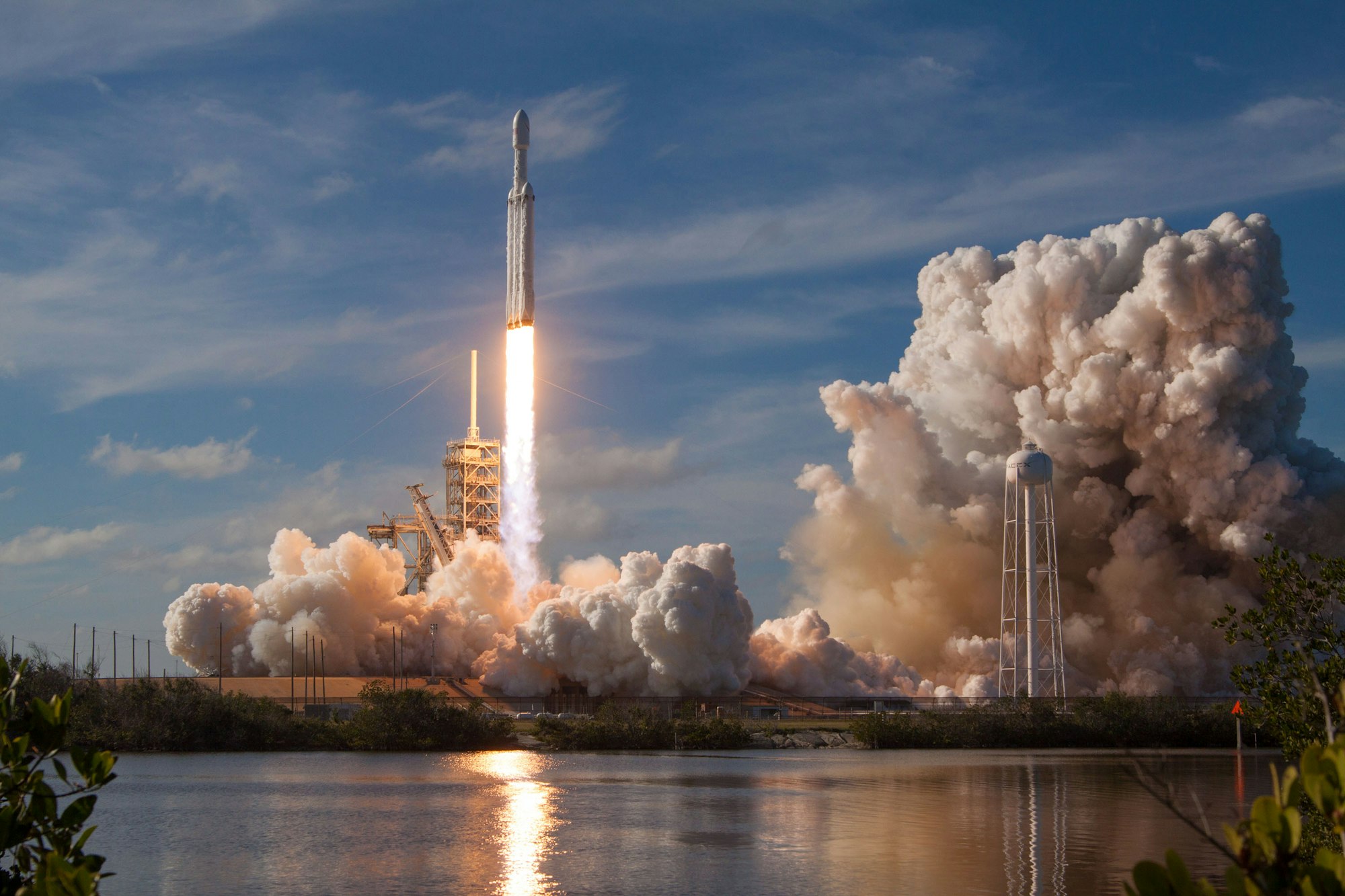“Dedicated to the service of the nation”, read the brightly-lit, red sign on the main building of the Indian Institute of Technology, Kharagpur.
Detention centre that it was, entry in there was previously limited to the fighters of the concept of freedom. Now, a symbol of change in the country, students of science, stand in front of the soaring tower wondering if the purpose of science is to serve the state.
With a Virgin Atlantic GlobalFlyer, a person can today, go around the world in just 67 hours. This when compared with Ferdinand Magellan’s global expedition in 1522 which took three years and cost the lives of almost all of his crew members, clearly shows the growth of Science and Technology in the last 500 years.
This germination was majorly the result of admittance of ignorance or more critically, the acceptance of ignorance that everything we think we know can be proven wrong as we gain more knowledge. The dogma of religion could finally be questioned and thinking for oneself was no longer considered heresy. The quest for knowledge repeatedly proved that more research allowed us to acquire new powers and in particular develop new tools and technologies. To be involved in science was not only gratifying but also empowering.
In The New Instrument as Francis Bacon argues, ‘knowledge is power’. The real test of knowledge soon became not whether it’s true but whether it empowers us or not.

As of today, most of us tend to think that there is little point in research if it does not result in new technologies.
However, this was not the case. For a long time, Science and Technology were totally separate fields. Rulers financed educational institutions only for the purpose of buttressing the existing social order. New technologies were created not by extensive and meticulous scientific research but by trial and error and most often by uneducated craftsmen. As a matter of fact, gunpowder was invented accidentally, by Daoist alchemists searching for the elixir of life. Today countries depend on science in almost every field of policy from energy to health to security. The contrast is clearly pronounced in weaponry. Today’s wars are scientific productions. The military funds a large part of scientific research and technological developments.
Today science needs more than research to make progress. Political and economic giants invest in science for the miraculous new powers that enable them to obtain new resources, a part of which is reinvested in scientific pursuits. The quest for knowledge was soon eclipsed by a quest for power, wealth and more resources.
Science was just one of the faster, almost co-incidental routes to this ‘glory’. Be it Christopher Columbus’ journey across the Atlantic or Neil Armstrong’s journey to the moon, science was always backed to promote the interests of the State in technology and resources.
Mencius, an ancient philosopher once said about science, “In straitened circumstances, they perfected their own virtues in solitude. In prosperous times, they aided all under heaven impartially.”
Science, in ancient times, was only a matter of resources, time and observations. However, the economy severely constrained the resources available. Wealth was limited and businesses were viewed as a zero-sum game. One business will only improve if another falls. The Scientific Revolution brought about a greater trust in the future, trust in science for advancing technology. With this we came to trust in a special kind of money called credit.
Credit is based on the assumption that a host of new and wonderful opportunities open up if we build things in the present, using the income of the future. Banks were set up which became sources of this money. Credit sponsored ventures which brought about economic growth which in turn created more trust in the future and hence released more credit.
Slowly science found supporters with an extra wallet, risk takers and believers in individualism-the capitalists. This creed of people thought about the economy as a win-win situation. They believed Adam Smith in The Wealth of Nations when he said that greed is good and that by becoming richer one benefits many. Capitalism was born.
A sophisticated financial system that could raise a large amount of money for entrepreneurial work and re-invested the profits to make more profit. This profit-driven ideology is more just an economic doctrine. It now encompasses ethics for thinking, behaviour and education. The nobility who spent time accumulating wealth has been replaced by the shrewd elite who spend a much smaller part of their profits on non-productive activities.
As a case in point, in China, when the Cultural Revolution arrived in 1966, science was deemed heresy and knowledge was considered counterrevolutionary. Schools were closed. Books were burned. The University of Science and Technology of China, or USTC, is known as “the Caltech of China” was forced to leave Beijing in 1969, at the height of the Cultural Revolution, and struggled to find a new home. But the Cultural Revolution with its intent of wiping off capitalism failed poorly.
It was followed by the Chinese Economic Reform that transformed Chinese economy into a state capitalism. And we all know the rest of the story of ‘China as a company’. USTC itself established a legacy for having built China’s nuclear and space programs, as well as for its strides in quantum computing and artificial intelligence. Thus even from a political perspective of running a country, having a capitalist economy that is fueled by technological innovations has been a very successful model over the years.
This new religion of Capitalism very soon had a decisive influence on the development of modern science. Today, a project that cannot convince people about its ability to increase production and profits, will not usually see the light of day. As science invented new products and provided ways to increase production, an entirely new problem was born. Who’s going to buy all this? And you reading this are the answer-Born out of the marriage of science and capitalism, their child-the consumer.
For most of our existence, humans had owned nothing. Perhaps a bowl to eat, a pair of trousers, a broom and if things were going really well a few farming implements. As production methods advanced, goods became cheaper. Soon people began to spend the extra in buying commodities like combs, mirrors and perhaps an extra set of pants. This prompted enormous new industries and what was once reserved for the rich was soon available to the poor as well.
In 1723, a London physician named Bernand Mandeville published an economic tract named “The Fable Of the Bees” wherein he proposed that contrary to centuries of religious and moral thinking, what made countries rich and safe, honest, generous and strong was a very minor and unelevated activity- shopping for pleasure. Of course, nobody needed embroidered bags and silk clothes but they could be prompted to buy these by popular fashion and the profits could be used to build workshops, train apprentices and fund hospitals.
Today we all follow the consumerist-capitalist religion. It has seeped down into the veins of our society and is so subtle that we can’t identify it even after it being right in front of us. But has this confluence of technology and capitalism really led us to progress?
If we look at the numbers-average lifespan has increased, childhood deaths have reduced, we can counteract epidemics and diseases with ease, even deaths owed to wars have reduced. But is progress of humankind merely a product of these numbers? The ambit of technology can only tell us as much, the rest is of an inter-subjective domain and probably can’t be answered so objectively.
Written By Suraj Iyyengar


